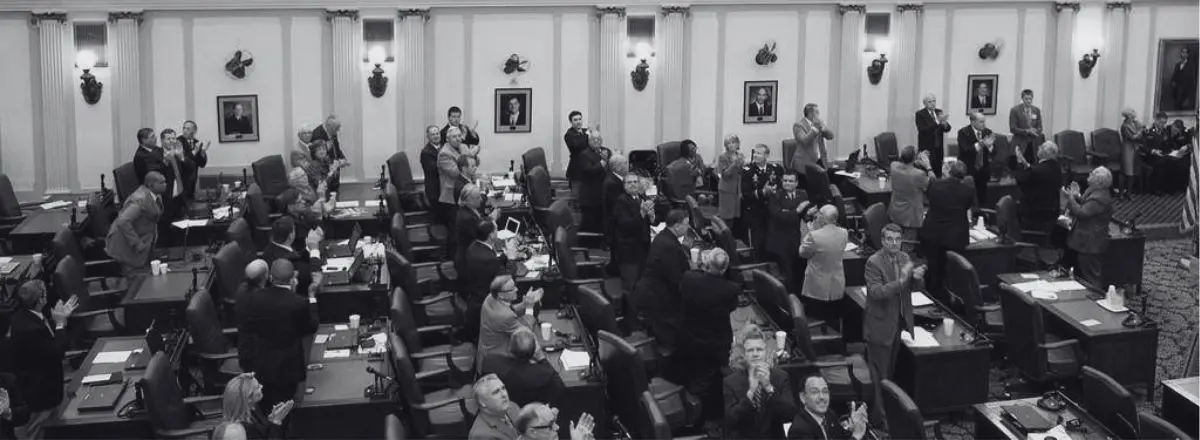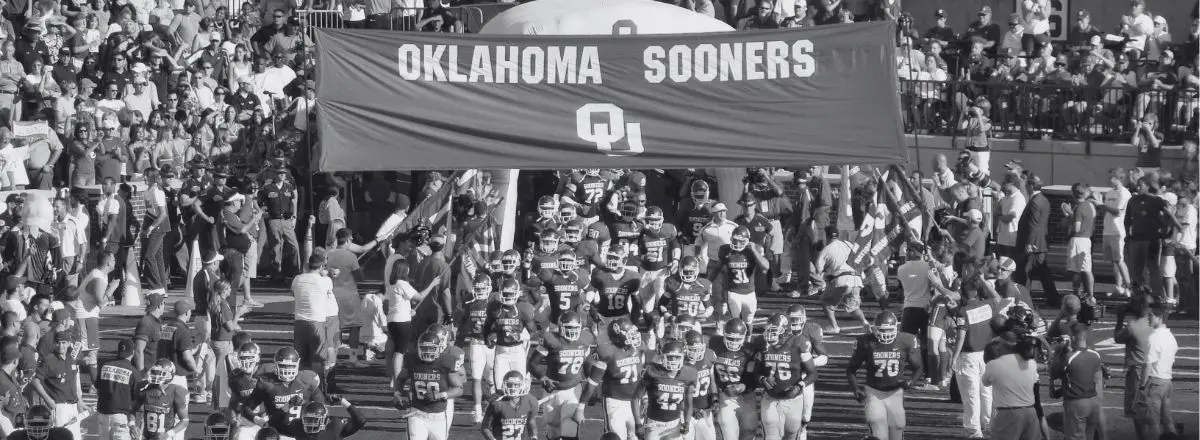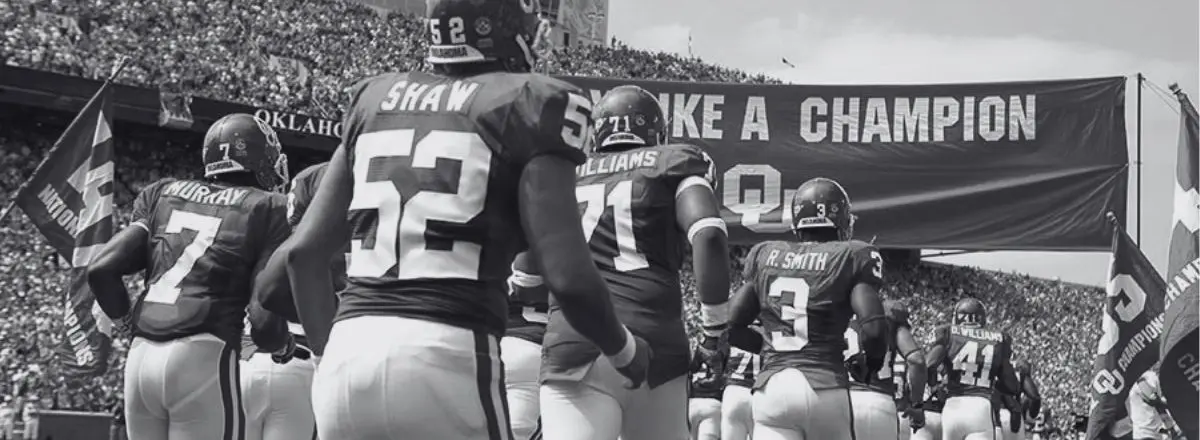Senate Majority Whip Bill Coleman just confirmed what many have suspected all along: The fate of Oklahoma sports betting legalization hinges on figuring out the mobile wagering element.
During a recent sitdown interview with Wayne Stafford of FOX 25, Coleman outline didn’t mince words on the state’s biggest hurdle to legalizing sports wagering. More specifically, though, he noted that the tribes will have to figure out how online sports betting in Oklahoma works for any legislation to gain real traction.
We transcribed his full comments on the matter below:
“Representative Ken Luttrell started on this four years ago. I joined him a year after that, three years ago, trying to get this done. What’s different about Oklahoma is the tribal aspect. We do have 39 sovereign tribes here, who do have exclusive rights to gambling in the state of Oklahoma. So one of the things that has to be done is they have to agree amongst each other how it’s going to be done.
“The tricky part about the whole thing has been the mobile aspect, the mobile sports betting that is 95 percent of the revenues in other states that have sports betting. And that’s really hard to split up, because you’ve got some tribal land that is huge, and you have other tribes with small land. So right now, the tribes themselves are talking about how to do the mobile aspect of it. That is by far the most important [part.]”
This answer admittedly seems to undersell the role Governor Kevin Stitt has played in derailing the process. His attempts to circumvent tribal collaboration have arguably delayed Oklahoma sports betting legalization more than anything else.
On the bright side, Coleman doesn’t mention Stitt in his answer. This suggests that, perhaps, the governor is no longer a real roadblock to an agreement getting done.
Coleman is right about Online Oklahoma Sports Betting
One thing Coleman is spot-on about is the prevalence of online sports betting in the United States. While him saying that it accounts for 95 percent of all wagering in the country feels steep, it is not necessarily wrong.
Take a look at any legal sports betting market in the United States. There’s a good chance that online sportsbooks account for 95 percent of the volume.
Now, Oklahoma could look to legalize in-person wagering alone. That is how sports betting in Wisconsin currently works. But while that preserves tribal market shares, it also significantly caps the ceiling on revenue for every involved stakeholder.
Sure, on-site Oklahoma sports betting will work for some people. It won’t be for everyone. If you do not live near a casino, you are more likely to use an offshore betting site or cross state lines to bet on sports in Kansas.
Heck, even Coleman himself admits that’s what turned him on to pushing for the legalization of Oklahoma sports betting. As he tells Stafford:
“Well that’s what got me into it, because I could drive 20 miles north into Kansas, and [use a] Kansas cellphone tower. Oklahoma is one of 12 states that does not have legalized sports betting yet. And I just look at it as an entertainment aspect. When I got into this, I made a bet on Joe Burrow, how many rushing yards he’d have in the AFC Championship Game. I [couldn’t] care less about the AFC Championship Game. But that ticket got me enthralled into the game. It was a $20 bet, and it sits on my desk at The Capitol still.”
Somewhat ironically, while explaining how he got into sports betting, Coleman also introduces a sensitive issue.
Concerns Over Problem Sports Betting in Oklahoma Remain
The most common form of push-back over the Oklahoma sports betting issue boils down concern over problem gambling. Multiple studies show that the legalization of sports betting leads to an uptick in problem gaming and addictive gambling reports.
States have yet to figure out a way to meaningfully assuage these legitimate concerns. As Coleman notes, Oklahoma sports betting revenue would support problem gambling programs. Most experts agree, though, the money allocated is almost never enough.
Beyond that, so much of the funding is devoted to the treatment of problem gambling. Opponents of Oklahoma sports betting want policymakers to hash out a plan to prevent such issues.
That is easier said than done. There will be no eradicating problem gambling entirely, not so long as sports betting is available. But some states, like Massachusetts, are taking steps to push for individual gambling limits, financial background checks for sports betting customers, more restrictions on advertisements and promotional wagering and other areas.
Of course, the success of these initiatives is very much up in the air. However, they remain food for thought as The Sooner State continues to explore pathways toward gambling legalization.
When Will We Get More Answers on the Future of Oklahoma Sports Gambling?
While it is tough to predict what comes next for the Oklahoma sports betting agenda, we do know two things: Officials like Luttrell and Coleman will continue to push for it, and their next chance to do so is February 2026.
The Sooner State’s legislature will reconvene on February 3 and adjourn on May 29. That gives them more than three months to try passing Oklahoma sports betting legislation.
When asked about the chances of that happening, Coleman was noncommittal. So keep that in mind if you are holding out hope for The Sooner State to change its gaming laws. But Oklahoma has commissioned an interim study on sports betting’s impact, and it’s clear the issue is top-of-mind. While these aren’t guarantees, they are the first steps toward legalization.
Take a look at this list of the top online sportsbooks so you can find one that works for all of your sports betting needs:
-
EXCLUSIVE BONUS
 50% bonus up to $250Play Now
50% bonus up to $250Play NowT&C apply, 18+, Play responsibly
-
EXCLUSIVE BONUS
 125% up to $1,250Play Now
125% up to $1,250Play NowT&C apply, 18+, Play responsibly
-
EXCLUSIVE BONUS
 225% up to $3,625Play Now
225% up to $3,625Play NowT&C apply, 18+, Play responsibly
-
 50% bonus up to $250Play Now
50% bonus up to $250Play NowT&C apply, 18+, Play responsibly
-
 125% up to $2,500Play Now
125% up to $2,500Play NowT&C apply, 18+, Play responsibly












